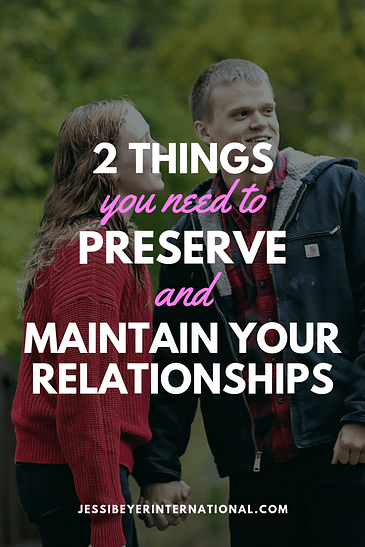Relationships are hard, and I don’t mean only romantic ones. No, relationships with friends, family members, and romantic partners can be really challenging. There are so many tips out there for preserving and maintaining your relationships: schedule time with them every week, include physical affection every day, give seventeen and a half compliments every hour… the problem with all of this? Relationships aren’t math equations that you can apply certain rules for success to.
Relationships are unique, fluid, and need different things at different time.
What I’ve found, though, is that there are two characteristics that, when applied every day and to every interaction, make sure your relationship stays strong and rewarding for years. Now, I’m not a relationship coach at all. I’m not a couples therapist, either. I am, though, someone who’s had a best friend since we were both three years old and someone who’s kept a best friend for years while communicating almost entirely over text. Most people would tell you that’s impossible or unrealistic, right?
Wrong.
You can have the relationship of your dreams with these two simple keys.

First of all, you need to have excellent communication.
‘Excellent communication’ does not mean sitting there talking the other person’s ear off about Game Of Thrones for four hours. That’s technically communication, but that’s not what I mean. I mean communication about your feelings, your needs, and your desires for the relationship.
So many people talk about how their partner does this or their mother does that and that it drives them up the wall, but when I ask if they’ve told their partner or mother about that, the answer is ‘no’ a surprising amount of times. If you want a successful relationship, you can’t expect the other person to be a mind reader. You need to stop believing that discussing your dislikes is complaining and that it’ll annoy your partner/friend/family member (and if it does, you need to reevaluate your relationship on a new level). Communication about these things is mature and necessary.
Furthermore, the communication piece needs to focus on you, not your partner. For example, good communication doesn’t look like: “You’re always late to dinner!!” That just brings out the blame and defensiveness. Instead, your communication needs to focus on you and your needs. Try: “Punctuality and eating dinner together are really important to me in relationships.” You’re not blaming the other person; you’re expressing your needs. Then, you could follow it up with something like: “How can we make a plan that ensures you have enough time to get everything you need to done and we still get to have dinner together?” This puts you on the same team instead of pitting you against each other.
Secondly, you need to reciprocate.
Reciprocation is my other key that determines successful relationships. How many times have you been in a relationship where it feels like you’re doing all the work and putting in all the effort? For me, that happened a lot, so I made reciprocation a requirement in future relationships. In other words, the other person needed to be as invested in the relationship as I am.
If this isn’t the case in your relationships, there’s a few things you can do. First of all, now would be a great time to try some communication. Express your thoughts, your needs, and your feelings surrounding the situation and see where that discussion takes you. Secondly, it might be the case that you need to scale back your relationship or remove it entirely.
Some people only want to take and aren’t at a maturity and mental health level where they can give and contribute to relationships. That sucks, but it’s not on you to hold their hand and cater to their every need, hoping that they’ll be able to give back to you in the same way someday.
Now, I’m not saying that the goal of relationships is to receive, and in order to do that, you need to give – I’m not saying that at all. Instead, I’m saying that relationships should be equal in terms of value and effort. It doesn’t benefit either party for one to be significantly more invested than the other. The giver feels used and the taker gets used to skating through relationships.
A lack of reciprocity, especially when you’re the giver, can be hard to acknowledge and work with, but your relationships will be so much safer and so much more fulfilled when you’re able to recognize a lack of reciprocation, ask for it, and make decisions about your investment in the relationship based on the answer to your request.
These two tips have been such a good guideline for me when navigating my adult relationships, and I hope they’re helpful for you, too! Your homework is to take a look at the relationships that you’re struggling with right now and ask yourself these questions:
- Are you communicating your needs with them?
- Do you communicate by blaming them or by expressing yourself?
- Are you both reciprocating the effort in the relationship?
The answers to these questions can help you make decisions about how to handle the relationship in the future.
As I said, I’m not a relationship coach or a couples therapist, so if you’re looking for more personalized or professional help, definitely consider the help of a coach or therapist. There’s no shame in asking for help! In fact, it shows a dedication to the relationship that most people never have.
If you’re looking for a video version of this, make sure to head over to my Facebook!


